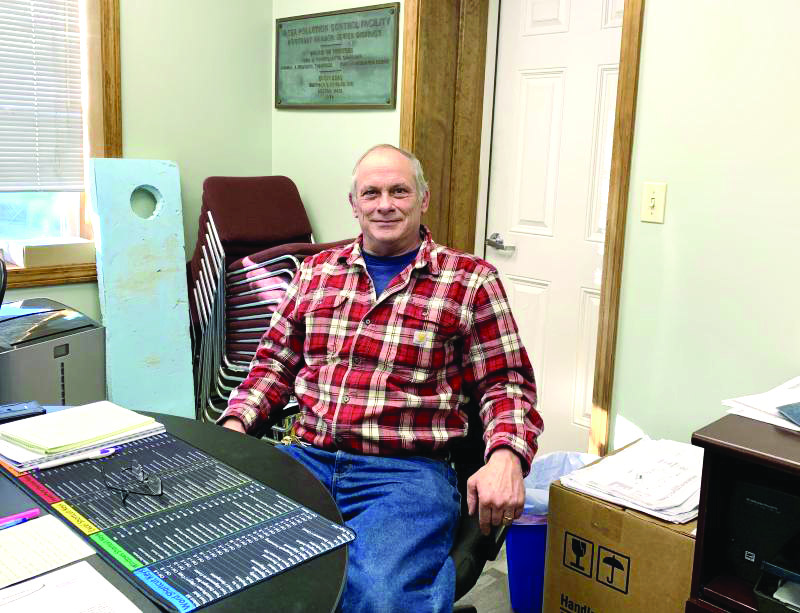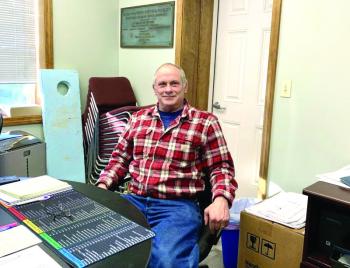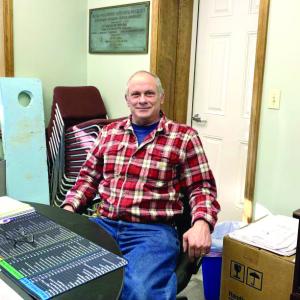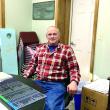David Pratt named Boothbay Harbor Sewer District superintendent
David Pratt was named superintendent of Boothbay Harbor Sewer District this week, marking the next step in his 13-year-long career with the organization. Pratt has been interim superintendent since Sept. 2, following the departure of Nick DeGemmis.
“I really care what happens here. It’s nothing I’d ever walk away from,” said Pratt.
Pratt’s time with the district began as a later-in-life decision. He spent 25 years as an auto technician with Newcastle Chrysler but maintained a “lifelong dream” of trying something new when he hit 50. Then, the magical age came, and Pratt still had no plans to switch paths, until he heard about an opening at the sewer district.
“It really opened my eyes that I had kind of mastered one career, and maybe another challenge is just what I needed. And it was a great move. I should have done it many years ago. I would have enjoyed it very much."
Pratt said many people don't realize how essential sewage treatment is to protecting public health, and how much goes into the process.
The procedure begins with raw sewage going through screenings to filter out unwanted objects, from large obstructions to finer materials, such as dirt, grit and eggshells. Next, it goes to the treatment tanks, which complete several processes over multiple hours to aerate. “Basically, a treatment plant is a big bug farm. The bacteria does the work. Our job is just to keep the bacteria happy and hungry,” he explained.
The mixture then moves to a specialized treatment tank to be disinfected before it’s discharged back into the ocean. This occurs about every two hours. For Pratt and his crew, their responsibility is to make sure the water comes out as clean as possible. “Generally, I could put (our treated water) in a glass, and you would never know the difference between any other water.”
During the summer months, the plant treats between 400,000 and 500,000 gallons of raw sewage a day, and an average of 150,000 gallons during the off-season. This can pose a unique challenge to the facility's bacteria who feed on the sewage and adjust their population according to the size of their food source. While accommodating and stabilizing the bacteria’s population growth is something the crew has mastered over the years, it still takes adjustment and daily monitoring.
Pratt has found himself on the ground overseeing the process more than is typical for a superintendent, due to the staff shortages that are plaguing many industries in the region. The main issue for the district is finding people who fit the location criteria. Employees are required to be on call 24/7, 365 days a year in case of emergency – a lifestyle Pratt is used to as chief of Boothbay Fire Department and with more than 20 years of firefighting experience.
This means staff have to live within 30 minutes of the plant or agree to move to someplace within that radius once hired. This becomes a problem when high housing costs make moving unattainable for many.
Pratt is interviewing several prospective employees and hopes more people will be pursuing the field. As sewer treatment is an “aging industry,” he expects high-level jobs will open up soon for people to neatly step into. “It can absolutely be a career, not just a job.”
In addition to returning the district's staff to full capacity, Pratt’s primary goal as superintendent is to maintain the resiliency of the 35-year-old plant. This includes small yearly upgrades, the purchase of a generator to run the entire facility, and the construction of a sea wall later next year. The sea wall, meant to protect the plant from flood waters, has been in the works for multiple years due to the increasing frequency of storm surges with the changing climate. The bid should go out next spring, with construction starting next fall.
“I want to rebuild our workforce and make this place secure so when my retirement day comes, I can happily retire without a worry,” said Pratt.
























